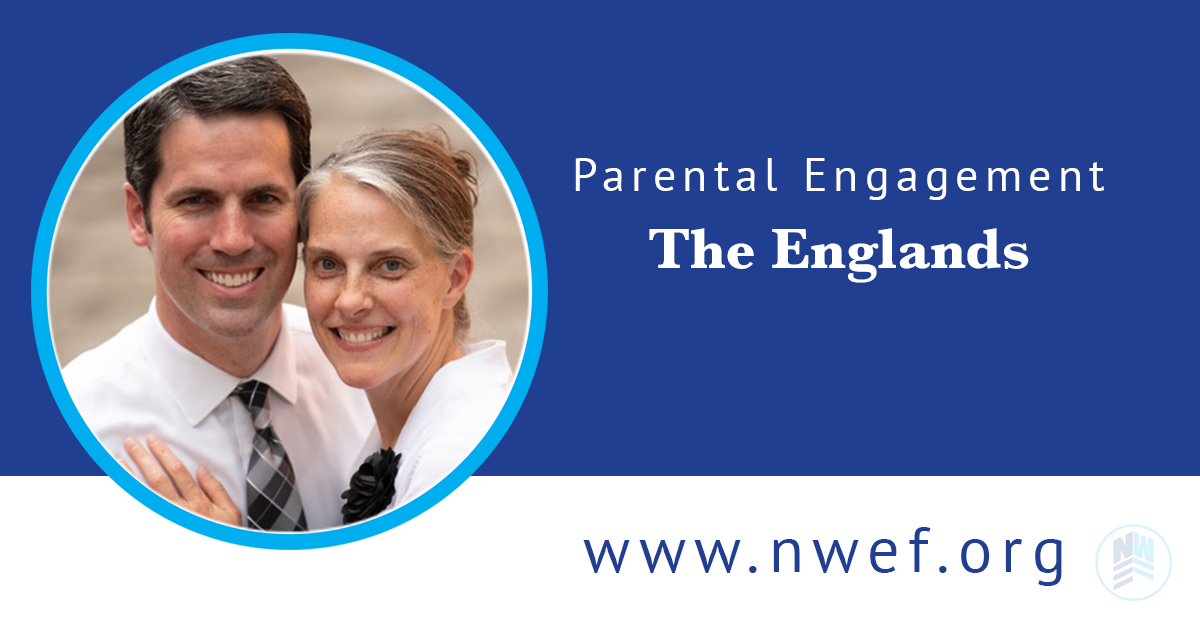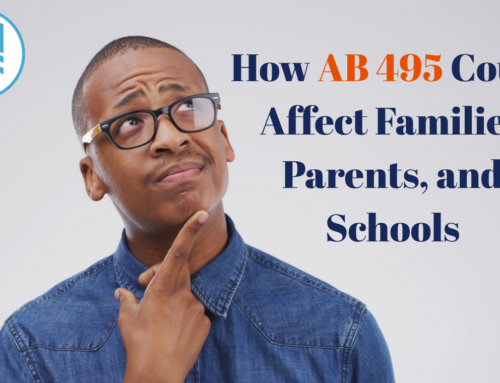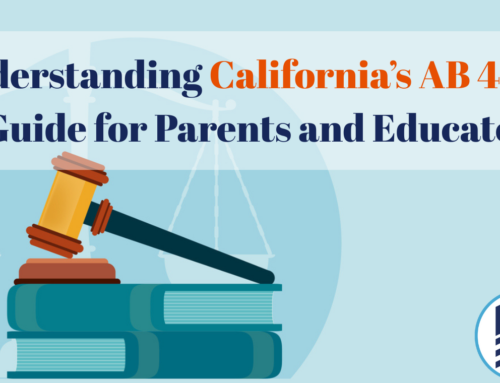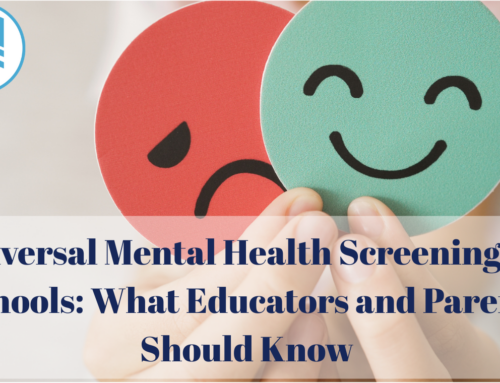
Perhaps you’ve heard bad things in the news lately about the public school system, and you recognize a potential threat to your child’s education. Chances are, you have even felt the urge to step in and do something. After all, you want the best education possible for your child.
Even though you recognize the need for change and want to help, you still might feel overwhelmed. “Where do I even start?”
Maybe you’ve also heard that positive parental engagement makes all the difference in your child’s learning experience.
But what kind of involvement? What does that look like?
Here at the Noah Webster Educational Foundation, we are champions of parental engagement. We want to equip you with the information and tools necessary to begin the educational journey with your child.
Today, we’d like to do that by sharing some relatable insight from a couple of parents and educators: Robbie and Rachel England.
The Englands are a husband and wife team living in rural Pennsylvania who have spent their lives learning and sharing what they’ve learned with others.
Rachel has taught public and private school, along with running a home-based music studio. Robbie is a physician’s assistant and has been on the board of God’s Bible College for over 20 years. Both Robbie and Rachel have experience as members of their local public school board—a direct connection to the school which their four children attended.
Today’s interview clip offers some practical guidance for parents who wish to be involved in their child’s education and make the best possible impact on their experience. Click here to watch the entire interview.
NWEF PRESIDENT MELVIN ADAMS:
“We all hear these stories, where—whether it’s the sex roles or the bathroom issues or CRT or whatever those issues are, and they vary—but where even hundreds of parents [are] at board meetings and are saying, ‘Look, we don’t want this’ and [there’s] just massive protest…
And yet, they’ve shut parents out, and at the end of the day, the board moves forward without support. They just go the opposite direction. So that’s part of the dilemma we have and why so many parents are frustrated. Maybe they’ve never engaged at their local school, but they hear these stories on the news, and they simply throw their hands up and say, ‘It’s impossible.’”
ROBBIE ENGLAND:
“There are school board situations that they shut the parents down, and they close them out, and they just march forward in a very obstinate perspective. However, there are other places where they’ll hold that school board off and replace them with other people. And you’re really one or two cycles away from completely flipping the board.
You know, four years or a two-year term is all they have, so it can change. And you can use that opportunity to say, ‘This is what this board is doing. Let’s replace them with these people, and let’s move in this direction.’
I think that’s true in so many areas, but I think education particularly. We have so much power that we have run away from, and then we throw up our hands and say, ‘I can’t believe the state we’re in.’
Well, I may not see the change in my lifetime. But if I do my part—and I can train my children and they can do their part—hopefully we can see things turn. Obviously, we know that evil is an attractive force, and it’s always easier to track in the direction of evil. It’s hard to go against the stream and do the right thing.
But if you take the high road, and if you live with integrity, if you live with values, and you show your faith, and you show your morality—I’ve told my kids, ‘You can debate all you want, in the public school system, on abortion and all these other issues, but at the end of your conversation, you need to be able to invite that person to church.’
So being right is important, but being kind might even be more important. I want to be Christ-like in the delivery of my perspective so that people are attracted to the God I choose to serve—not because I’m always right.
I’m flawed, I’m limited in my own perspective, but I want to do the right thing and be consistent. But show it in a way that matters, and at the end of the day, know that I’ve done my best and didn’t run off and try to hide.
I feel like our society is such an interesting place right now because the opportunities are huge. The challenges are big, but the opportunities are huge for somebody to stand up with value, with compassion, and address the issues in a way that I think will resonate with the majority of people.
I don’t think most people agree with a lot of the things that are being pushed right now. But they don’t know how to respond. We have to be aware, we have to be informed. You know, I think as a starting point for many of the people who will watch this—start going to board meetings, like Rachel said.
[Rachel: ‘Yeah, don’t wait till a crisis.’]
Right. Know who your superintendent is. Whether your students are in class there or not, you’re still a stakeholder in the community. Be aware of what is happening.
Be aware of the dynamic, get to know the superintendent. I think there are so many ways to build bridges. And then when a crisis comes, you have some credibility to bring to the table and say, ‘From my perspective, I think this would be a good direction.’ I think that carries way more weight than just blasting people with letters or phone calls and trying to hammer down when there’s a crisis.”
RACHEL ENGLAND:
“And get involved early and often. You don’t wait until it’s a major thing and there are 100 people at board meetings. You can’t. You do that…and it’s not too late—but it feels like it’s too late, and it’s so overwhelming at that point.
You start when your kid is in kindergarten. You get involved, you volunteer, you get to know those people, you develop relationships so that I can call—I can call the superintendent right now (of course, I’ve been on the board, so that doesn’t really count).
So really, as a volunteer—as somebody who was well-known in the district— I walk down the hall, and different teachers are like, ‘Oh hey!’ and give me hugs as I’m walking down the hall.
That’s huge! Because then you can say, ‘This is a problem, what’s being taught here. I don’t want my child to be a part of this, and I think that this is…’ They’re like, ‘Oh, I’m so sorry.’
Because you’ve developed that relationship with them, and they respect you and appreciate your perspective. That’s where it has to start. You can’t wait till the big, huge moments.”
ADAMS:
“Yeah, I think that’s really critical, what you just said there. Because you know, there’s the old saying that people don’t care how much you know, they want to know how much you care.
That kind of applies to this. If there’s an issue and all of a sudden you’re a loud mouth on it, it’s like, ‘Okay, who are you and what hole did you pop out of?’
And when you are there and people know you, you’ve built relationships. They know you’re engaged because you care about them as a teacher, as an administrator—that you care about what’s going on in the schools, that you have a heart for its flourishing. Then when there are problems, they’re much more prone to listen to you because they know you care.”
Are you interested in learning more about how to engage with your child’s educational experience? On Thursday, August 19, the Noah Webster Educational Foundation is holding a Parental Engagement Q&A Panel live on Facebook. Tune in to hear great information, take away practical steps, and get your questions answered!





[…] you as a parent, teacher, or community member. Check out our blog to learn more about things like parental involvement, functions of the school board, and running for a position on the school […]